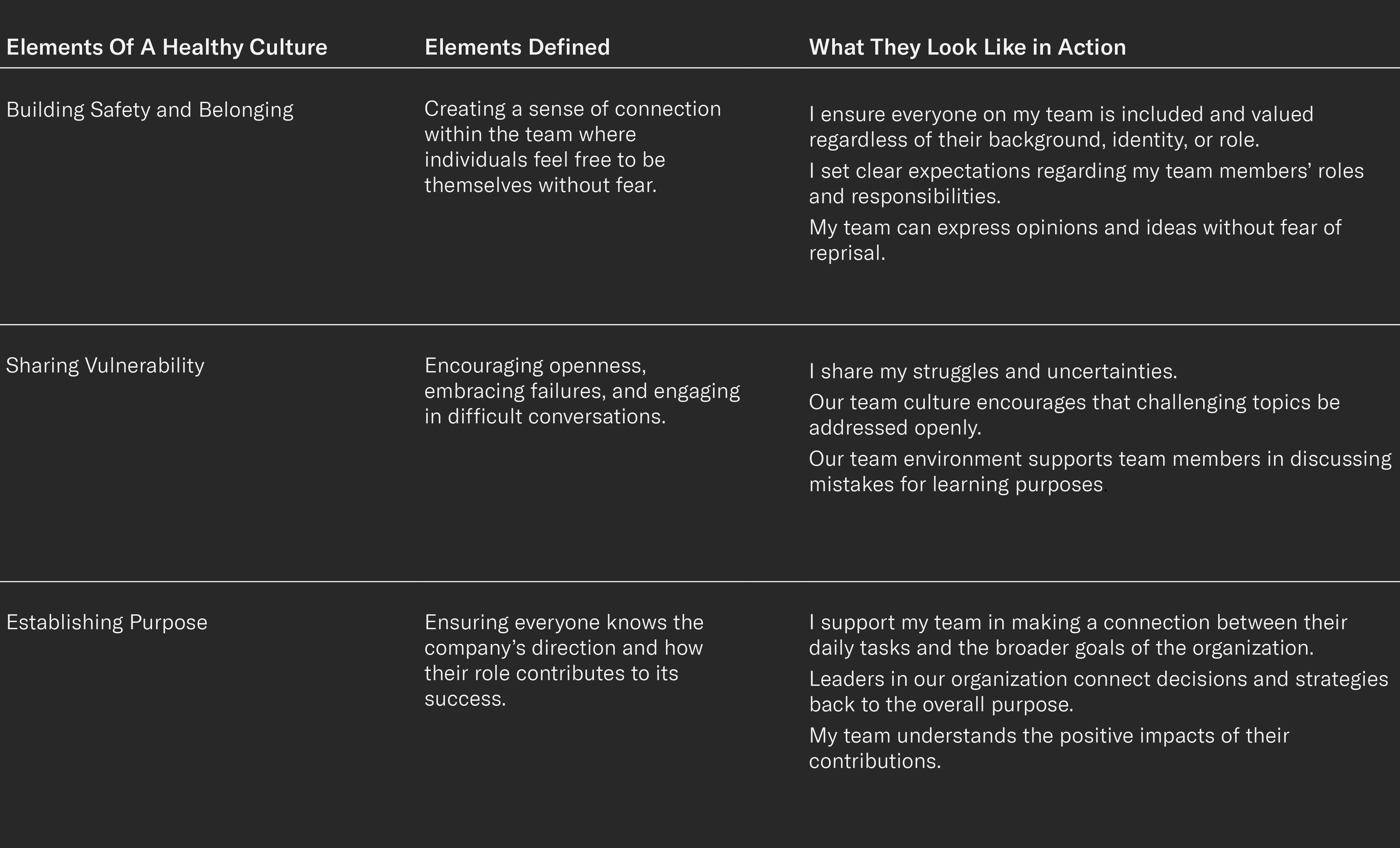
What Is Culture, Really?
The concept of company culture can feel elusive and intangible. What is it exactly? Why is it important? Who is responsible for its creation?
Whether you’ve considered it or not, your organization already possesses a culture, for better or for worse. Organizational culture plays a pivotal role in shaping the well-being of employees and significantly impacts their engagement, productivity, and overall satisfaction. It also fuels innovation, collaboration, and team success. When you look back on your work history in different organizations, you may notice a stark contrast between your memories of getting by in unhealthy cultures and thriving in healthy ones, and how each environment influenced your ability to succeed.
Simply put, culture is how we interact. It manifests through people’s actions and behaviours. Some cultural elements are overt, such as vision, mission, and core values, while most operate beneath the surface, like assumptions, beliefs, expectations, and biases. We all play a part in shaping our team’s culture through our actions, with leaders holding the greatest power to influence an organization by virtue of their positions.
Since culture lives in the behaviour of people working together (in organizations of ALL sizes), it is important to understand that generating a healthy culture comes from developing leadership. Culture and leadership development are inextricably linked — increase the leadership skill in your organization and your culture develops positively. You simply can’t create a healthy culture without good leadership.
What Makes Up A Great Culture?
One of our team’s favourite reads on company culture is The Culture Code by Daniel Coyle. His research on healthy organizational cultures teaches us that the elements that generate an exceptional company culture are:
- Building Safety and Belonging
- Sharing Vulnerability
- Establishing Purpose
As you review the definition of each element below and what they look like in action, consider how you are contributing to a thriving culture at your organization.

Identifying the aspects of your team and company culture that are worth celebrating and those that require more intentional focus is a crucial step to creating an environment where individuals can flourish.
Next steps:
- Get clear on your organization’s vision, mission, and core values — these foundational cultural artifacts help communicate your expectations about how people focus their actions and behaviours while at work.
- Be curious about your current culture:
- What are relationships like?
- How do we treat each other?
- Who speaks up and who doesn’t?
- Do we reward or punish vulnerability?
- How do our diversity, equity, and inclusion policies and commitments increase safety for all, regardless of who they are?
By fostering a culture that values its people, you’re not only enhancing their experience at work but also nurturing an environment where everyone can contribute their best, ultimately leading to a happier, more successful organization.
Please be in touch with 3fold (3foldpartners.com) if you are interested in learning more about how we approach culture development through the lens of leadership development.
3fold is a culture and leadership development firm that aims to make work feel good and do good for commercial and not-for-profit clients from a wide spectrum of sectors and industries, including retail, tech, food and beverage, professional services, sports and recreation, and wealth management. We are located on the stolen territory of the Musqueam (xʷməθkʷəy̓əm), Squamish (Sḵwx̱wú7mesh Úxwumixw), and Tsleil-Waututh (səl̓ilwətaɁɬ) Nations, now known as the beautiful city of Vancouver.





